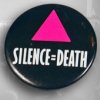 |
At some point or another, I have read one or more of the above comments in the POZ Forums. Prior to April 2013, I may not have given these statements a second look or thought—choosing to believe that people are entitled to feel the way they feel—but in April 2013 all of that changed.
This is a recount of my oldest brother’s illness. He lived in denial. He lived in silence. He lived in 2013, but became the face of AIDS circa 1980s. My hope in posting this is that another person and that person’s family and friends do not have to go through what my brother, his family and friends have went through.
April 3: My mother calls me to tell me that my brother has been taken by ambulance to the hospital because he has fallen at home. I go to the hospital. My brother is in the intensive care unit (ICU). It looks like he has been beaten up (but he denies this). In the course of my visit, I inquire as to his condition. The nurse gets permission to discuss his medical status with me. She informs me that his injuries are not life-threatening, but the reason he is in ICU is because they need to treat his toxoplasmosis.
"Toxoplasmosis," I say. I know that this is an AIDS associated opportunistic infection. She looks at my brother and asks him if it is okay for her to further discuss his medical status. He says yes. She informs me that he is HIV positive and has been (according to him) since 2009. This is the first I am hearing about it. He tells me not to tell my mother. He says he only went on meds for a brief period but stopped. I say, "Do you want to die? Why would you quit taking meds?" He says, "No, I don’t want to die. I guess I was in denial." Even at this time, he is more concerned about the bruises to his face from falling and some blurred vision he is having than he is about having untreated HIV. My brother’s weight is 135 pounds.
I call my mother and inform her of his condition (against his wishes—but I cannot keep this from her—and he hasn’t exactly been making the best decisions). She begins to make plans to come to South Florida from Ocala (5 hours away) to be with him.
April 4: I leave for a pre-planned trip to London, all the while questioning whether I should be going. But, I am told by the hospital that my brother will be moved to a regular room and barring any complications should be released within a few days to a week.
April 6: My mother, an insulin-dependent diabetic and two-time cancer survivor who lost her husband of 48 years two years earlier, arrives in South Florida. She is by herself; doesn’t know her way around; is hearing for the first time that her son has HIV. She stays in his hospital room 24 hours straight to be by his side. I am calling a few times a day from London to check on her and him.
April 8: My brother spikes a fever of 105 degrees. He is diagnosed with PCP (pneumonia). He is moved back to ICU. Unfortunately, he is allergic to Bactrim (to treat the PCP) and he is unable to swallow due to an extreme case of thrush, so he cannot take the alternative medication. He is put on an oxygen mask. He is also experiencing wasting syndrome. He is consistently soiling the sheets. He has cysts on his face. CD4 count comes back. He has 16 CD4s and a viral load in excess of 1,000,000 copies. His weight is down to 119 pounds.
April 10: I cut my trip to London short and arrive at the hospital. In addition to toxoplasmosis, PCP and wasting syndrome, he has now been diagnosed with cytomegalovirus (CMV). He is on about 10 different antibiotics and other medications. The doctors think that he has lost or is losing sight in his left eye. Because of the wasting and soiling of sheets, in addition to the catheter in his penis, he is now put on a rectal catheter to capture the constant flow of diarrhea. The doctors want to intubate him (breathing tube) but he refuses and signs a do not resuscitate (DNR) order. His weight is down to 110 pounds.
April 11: While at his house trying to find needed paperwork, mom finds gay-related pictures, a dildo and sexually-oriented text messages on his cell phone. Between the secret of HIV and his sexual orientation, mom is finding out that her son, whom she always had a close relationship (as he is the first-born), lived a second life that was kept secret from his family and friends.
April 15: The doctors inform us that in addition to PCP, toxoplasmosis, CMV and wasting, my brother also has Kaposi’s sarcoma (KS). He is now on about 20 different IV bags (so many bags that extra equipment is brought in to hold the bags); the nurses say they have never seen someone on so many IV bags. His breathing has become so labored that my brother rescinds the DNR and requests to be intubated. The doctors say he is showing early signs of respiratory failure. He is sedated and the breathing tube is inserted. The only good side to the breathing tube is that he can now be given the alternative medication (pill) for PCP and HIV meds (which are not available in IV form), which are crushed and delivered via a feeding tube. My brother has cysts and lesions covering his face. His weight is down to 90 pounds.
April 16: My brother’s best friend flies into town. My sister arrives. My cousins arrive. My aunts arrive. He is barely able to open his eyes, which are protruding from his face; his skull bones are visible; he appears to be completely blind in one eye; and is only able to nod because he can’t talk with the breathing tube inserted.
April 17-25: The doctors continue to try to wean him from the ventilator as they know that if he does not come off it soon, he may never come off. By April 25, his weight is down to 79 pounds.
April 26: After several unsuccessful attempts, the doctors are finally able to wean my brother from the ventilator. He is breathing with the assistance of an oxygen mask. I tell him how proud I am of him. He says, "I’m trying Phil, I’m trying." My mother and I go to centralized case management and within 2 hours we signed him up for every HIV service he may possibly need. We are hopeful that he has turned the corner. While he will have a long road to recovery, we feel positive that he will make it.
April 27: They prepare to move my brother to a regular room. We are all so happy!
April 28: My brother is moved to a regular room. He begins a light liquid diet. He is talkative and looking forward to the future. He knows that we are there for him and will be supportive of him every step of the way.
April 29: My brother is acting very disoriented and not coherent. Doctors believe that he may have AIDS-related dementia. They prepare him to have a lumbar puncture done and CT scan to check brain functioning and status of toxoplasmosis.
April 30: Lumbar puncture and CT scan are completed. Doctors give us the bad news that toxoplasmosis has not responded to treatment and is active and progressively getting worse. We are still hopeful that he will be leaving the hospital, but we have been told that he will definitely need nursing home care for a long while, if not indefinitely.
May 3: Respiratory functions begin to decline. Doctors say he is not strong enough to insert a peg to feed him. It is a Friday afternoon. We are told that there is nothing more that can be done. He will not survive. My mother is distraught. Parents aren’t supposed to bury their children. She cannot stop crying. My brother cries. I cry.
May 4: Mom and I make arrangements for hospice. My brother is wrapped up in a blanket, which covers his frail body. His weight is around 70 pounds. His bones are protruding through his skin. His thighs are the size of my wrist. We say our good-byes. My mother rides in the ambulance with him to the hospice.
May 5: 8:45 a.m. we receive the phone call. My brother has passed away. We travel to the hospice, stopping at a funeral home along the way to make arrangements for them to pick up his body. My mother says, "I don’t know if I can do this..." I don’t know what to say. We arrive at the hospice. My brother’s body lies in the bed. His eyes are still open. He has such a sad look on his face.
Since May 5, we have been cleaning out his home, hiring a lawyer for probate, my mother took three months off of school, I took time away from school. We grieve regularly. Mom still calls and says, "I don’t know if I can do this..." And I still don’t know what to say.
The death certificate reads "Cause of Death: Natural Causes; Acquired Immune Deficiency Syndrome (AIDS); AIDS related complications."
Silence = Death. Denial = Death. The pain of going through what we (his mother, his family, his friends) have went through and continue to go through has made it very clear to me that HIV is a big deal; that the fear of telling others and their response does not come close to what we have had to deal with and what my brother put himself through; and that this did not have to happen in 2013.
This post originally was published in the POZ Forums. Posted with permission by POZ Forums member phildinftlaudy.






5 Comments
5 Comments